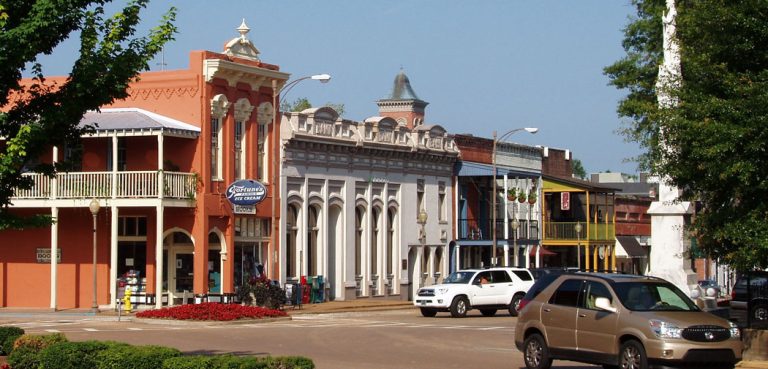Why Should You Retire in a College Town
The vibrant lifestyle in campus communities appeals to many retirees.

The youthful enthusiasm and vibrancy of a college campus often energizes the surrounding community, an attractive factor in the search for a desirable retirement location. Many campuses are adjacent to their own thriving retail area – a mixture of restaurants, bookstores, unique shops and grocery stores – which often includes an active nightlife scene.
Non-retail businesses such as banks, clinics, post offices and fitness centers also are within walking distance, as are a wide range of housing options. Most schools also offer a variety of cultural events that usually are open to the public, including lecture series, visiting scholars and concerts, as well as a plethora of sporting events. Many institutions offer continuing education programs – often with a discount or free registration for retirees.
Amenities Matter
The variety of those amenities, individually and collectively, is an attractive consideration for many retirees, said Jana Lynott, AARP Senior Policy Advisor, Livable Communities, PPI (Public Policy Institute)
Among the college-town lifestyle and amenities she cited are:
- Friendly communities where one can stay engaged in civic and social life
- Lifelong learning opportunities through course audit and other opportunities
- Cultural events and good dining, often without the cost and inconvenience of those found in larger cities
- Access to excellent health care
“College towns often have the economic support of the university and associated medical facilities and programs to support economically viable downtowns in the community,” Lynott said. “When combined with a transportation philosophy that accommodates students (think bike- and bus-friendly Madison, Wisc.), residents of all ages can enjoy the vibrancy of Main Street.
“Americans of all ages value a clean and healthy environment (clean air and water, opportunities to walk),” she said. “Older adults place a premium on safe and secure environments. Small towns are often associated with healthy living and safe communities.”
Other factors frequently cited by retirees are cost of living, state and local taxes and, to a lesser extent, weather and climate.
The 10 Best College Towns in America 2016
One community frequently mentioned in studies about best places to retire is Oxford, MS, home to the University of Mississippi.The university’s presence contributes to the active lifestyle of the community, an important consideration for many retirees, said Allen Kurr, vice president of the Oxford-Lafayette County Economic Development Foundation.
“I think that would probably make up 80 to 85 percent of them,” Kurr said of active retirees in the area. “I think you still do have folks who came here wanting that peaceful, quiet lifestyle, and we certainly offer that in certain locations around the town. But, they come here because they know that they can go to the square and enjoy a cocktail and a nice dinner, and see people like Morgan Freeman walking by, or Archie Manning, or Eli Manning or any number of politicians or musicians coming by. You don’t get that feel everywhere else and it adds excitement.”
Rosie Vassallo, Director of Retirement Attraction Program at the Oxford-Lafayette County (Miss.) Chamber of Commerce, said having a large university feeds the area retirement community, as do other factors such as a “our low cost of living, low taxes and no state income tax on retirement.”
“First and foremost are the Ole Miss alums consistently moving home to be near their alma mater,” she said. “Additionally, other states we recruit retirees from include Texas, Tennessee, Louisiana, Georgia, Illinois, California and New York. “
“Oxford has a rich history, vibrant and safe community offering extraordinary culture, social and educational opportunities,” she said. “The university opens their calendar to the community, and also offers anyone 65 years of age or older four credit hours per semester at no charge.”
Health Care Coverage is Key
Another important factor for retirees is available health care. Many universities – especially those with a medical college – are affiliated with local hospitals.
An AARP survey and publication, What is Livable? Community Preferences of Older Adults found that access to medical facilities is important.
“The population 50-plus wants medical facilities in their community, but not necessarily within walking distance in their neighborhoods,” Lynott said. “That makes sense because of some of the traffic and siren nuisances associated with hospitals.”
Retirement Cities That Would Make Millennials Wish They Were 65
Continuing education opportunities also are important for many retirees.
“Some colleges offer not only continuing education, but you can audit regular classes with other young college students,” said Beth Baker, author of the book, With a Little Help from Our Friends–Creating Community as We Grow Older. “As an older adult, they offer you free tuition to audit. That’s another great way to engage with younger people.”
“I just recently came across a study that showed that a really effective way to fight ageism, if you’re a young adult, is to have a friend who’s an older person,” Baker said. “It breaks down the stereotypes that we have culturally about old people. That’s an important piece of all this.”
